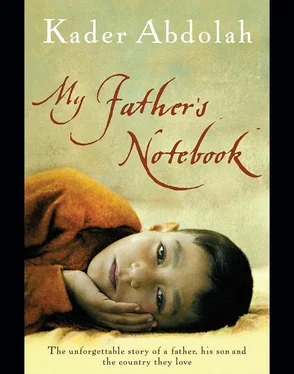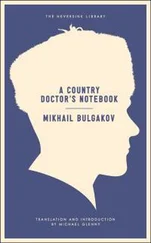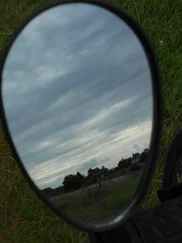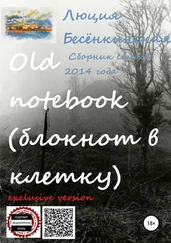Mount Damavand had me in its clutches. It had suddenly turned into a giant and I was a sparrow — a weak sparrow in the palm of its hand. How long did I have to keep going? How many steps did I still have to take? That was all I could think of. The world was standing still, but I had to keep moving, to keep climbing. One more step, then another, and another.
All of a sudden there was silence. For a moment I heard nothing at all, then only faint sounds, sing-song words.
Summoning every ounce of my strength, I could hear that people were singing. I smelled the familiar odour of sulphur: the volcano. Then I went deaf again and it got dark — totally dark. I fell.
Apparently, I passed out the moment I set foot on the rim of the bowl-shaped volcano. The experienced mountain climbers knew I needed immediate medical attention. It was a while before I opened my eyes and realised where I was. Someone helped me to my feet and steadied me. My father.
I leaned against a rock. My fellow climbers were putting flags on the rock and taking pictures. In fact, I have one of those snapshots here on my bookshelf. You can’t see that we’re standing at the top, at 18,934 feet. It looks as if we’re posed next to just any old rock. My eyes are closed and my father looks proud.
If you look at the snapshot without knowing the story behind it, you notice a strange thing: I look as sick as a dog, but my father is glowing with happiness. In fact, I was leaning against the rock and doing my best to keep from passing out again, so I could look at my father, who was mesmerised by the view.
He was looking in astonishment at a band of blue in the distance. I didn’t have enough energy to explain that it was the Caspian Sea — the sea that lay between us and the Soviet Union. He admired a faint, dark-green stripe on the horizon, without knowing that it was the largest forest in Persia.
I wanted to tell him to look at the view behind us, where a chain of mountains stretched out to the end of the world, but I was too weak. I nodded off again and the world fell silent.
If they hadn’t carried me quickly down to a lower elevation, I might never have woken up.
The next time I opened my eyes, I was lying on the ground. Somebody helped me to my feet. I’d been carried to the first-aid tent, but fortunately I didn’t need any more medical attention. The natural oxygen was already doing its work and my body was starting to function normally.
At 13,000 feet, I was able to walk on my own again, though my father walked beside me, keeping an eye on me. “How was it up there?” I asked him.
He smiled. I could tell that he was worried about me. I put my arm around his waist, kissed the top of his head and said, “I’m fine. Soon I’ll be walking like I always do.”
“What a wonderful father!” everyone exclaimed. “We’re enjoying his company so much!”
We had to keep moving so as not to catch cold. I hadn’t eaten since breakfast the day before, which was why I’d run out of energy. Still, I did my best to keep up with the rest. After about five hours we arrived at a shepherd’s hut, where tea was always available for the climbers, and where you could buy bread, milk and butter at reasonable prices.
Soon the group would reach the foot of the mountain, rest in Safar’s Café for a while and then head home. I knew I didn’t feel strong enough to drive.
Luckily, you could always rely on mountain climbers to help out. They arranged for my father and me to spend the night in the shepherd’s hut, so I could regain my strength.
We hugged each other goodbye. Everyone shook my father’s hand, took one last snapshot and left.
I’ll never forget the night we spent in that hut. It was as if my father knew that I’d never again have a chance to get so much rest.
That evening, the elderly shepherd, using every gesture under the sun, had a conversation with my father. Then he turned to me and said, “I know how you can get your strength back. You need to take a bath. Your father, too.”
“Here? A bath?”
“I have a magic bath. Actually, it’s only supposed to be used by shepherds, but you’re a decent boy, you respect your father. Come, I’ll show you. Damavand gives back what it takes.”
After a fifteen-minute walk through the crunching snow, the shepherd held up an oil lamp. “In here. This way.”
We followed him through an opening in the rocks leading into a cave. Then, guided only by the faint light of the oil lamp, we walked about a hundred yards into the cave’s inky depths. I could smell the sulphur from the volcano.
“Wait here,” said the shepherd.
He put the oil lamp on a ledge.
“Now come look!”
I took a few steps forward, leaned over and saw a pool of steaming water.
“Feel it!” the shepherd said.
I stuck my hand in the water.
“Oh, nice and hot.”
“I’ll leave you to your bath,” the shepherd said, “and come back for you in an hour.” He left.
In the yellowish glow of the oil lamp, the cave seemed magical. My father helped me into the bath, then carefully got in himself.
I wanted to stay there for ever.
Ishmael has no idea where the road leads.

The Dutch poet Rutger Kopland knows what he’s talking about when it comes to mountains. I now live in the polder, but I know that I left myself, or rather us , back in the mountains, just as acciden tally as all the rest.
In this attitude, as they lie
here, it seems perhaps
an attitude, it looks perhaps
like staying, but
whereas they rise up and
descend all around us, like
earthen bodies, asleep,
with the snow dripping off
their flanks and new falls
covering them again,
it is only as though we
could abandon ourselves,
invisible in this herd.
Mount Damavand had become a memory. One of my dreams had come true and I felt good.
The trip had helped me to think things through. I resigned myself to my fate and opted for my fatherland. I drove back to Tehran with my father. Then I took him to the bus station and bought him a ticket. “This bus is going directly to Senejan. You don’t have to change buses. The driver knows where you’re supposed to get out. It’ll be a long time before we see each other again. Have a good trip and give my love to everyone.”
“Can you phone us?” he signed.
“Not for a while.”
“Will you be coming to see me in the shop?”
“No.”
Only then did he understand why I’d been so anxious to go to Mount Damavand with him. He looked as though he thought we’d never see each other again. I took back my words. “I don’t know, I’ll try to come for a visit.”
I hugged him and the bus left.
Two days later I had an appointment to meet my contact person. Had he been arrested? Had he gone into hiding? Had he fled the country? All I could do was hope he’d show up.
We had a secret code. I was supposed to drive past a certain school once a week and check the fence on which the students chalked their graffiti. If the word salaam was scrawled on the fence, it meant that all was well and I was to meet him at the appointed place. If the word wasn’t there, I was to try and find it on the wall of another school. If it wasn’t on that wall, either, I knew that I was in danger. In that case I was supposed to go into hiding immediately and report to another place two days later to meet a new contact person.
Fortunately, the word salaam was on the fence. Salaam —greetings, hope and best wishes, all rolled into one.
Читать дальше













